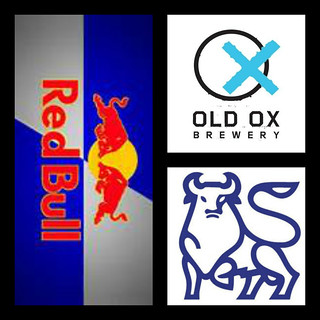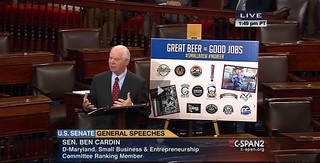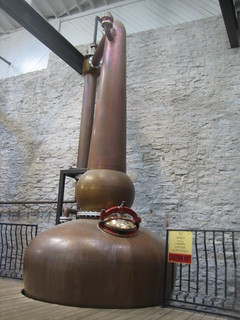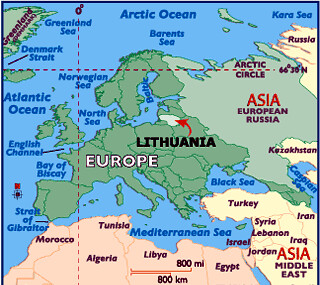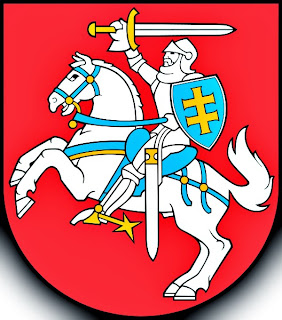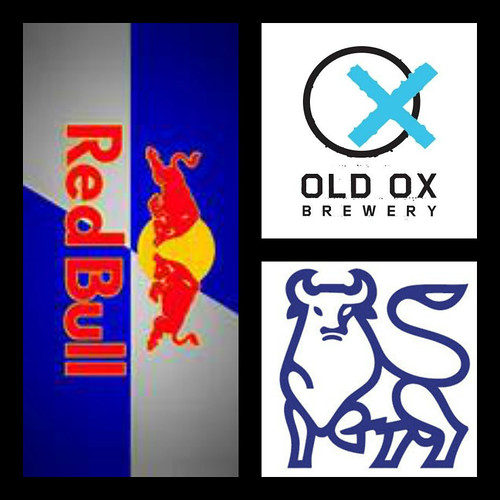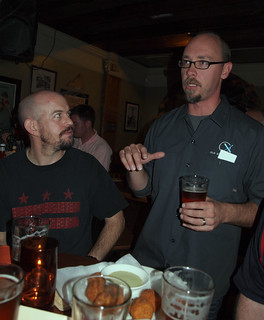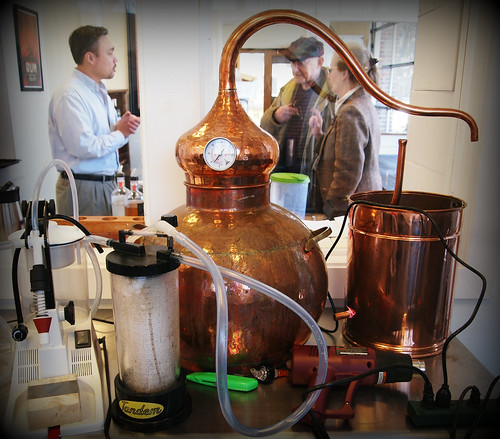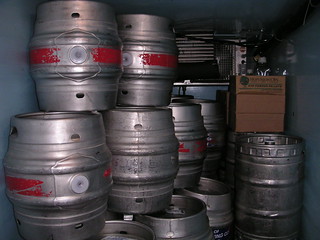Saturday, February 28, 2015
Pic(k) of the Week: Wine discussions
Cedric Vallors (r) – the U.S. Portfolio Manager for Domaines Barons de Rothschild– sits in animated discussions at a wine dinner.
And this was only at the start of the evening. Still to come: six wines from Chateau Lafite Rothschild, with each wine matched to a dinner course.
The Palm Restaurant
Tysons Corner, Virginia.
24 February 2015.
The Lafite estate has produced wines since the 1670s. It was designated as a Premier Cru Classé in 1855. A few years later, in 1868, Baron James de Rothschild would purchase Lafite.
-----more-----
Monday, February 23, 2015
Clamps & Gaskets: News Roundup for Weeks 6/7, 2015.

A bi-weekly, non-comprehensive roundup
of news of beer and other things.
Weeks 6/7, 2015
1 February, 2015 - 14 February, 2015
- 14 February 2015
One of history's most iconic photos has turned 25 years old. On Feb. 14, 1990, NASA's Voyager 1 spacecraft took a family portrait of the solar system, capturing Neptune, Uranus, Saturn, Jupiter, Venus and Earth — which showed up as a "pale blue dot" — in a single view.
—Via Space.com. - 12 February 2015
"From beautiful, downtown Burbank." Gary Owens, radio and 'Laugh-In' announcer, dies at 80.
—Via LA Times. - 9 February 2015
Austrian beverage behemoth files a trademark complaint with the U.S. Patent and Trademark Office against a small start-up Ashburn, Virginia, 'craft' brewery, Old Ox Brewery, for perceived consumer confusion over the name and logo of its energy drink versus the brewery's logo.
—Via YFGF. - 9 February 2015
Alabama Chief Justice defies Federal court order; urges state's probate judges to refuse to license same-sex marriages.
—Via Washington Post. - 9 February 2015
Fair BEER Act excise tax relief legislation introduced in the House of Representatives. Brewers Association opposes the bill.
—Via Craft Brewing Business. - 8 February 2015
Former North Carolina college coaching great Dean Smith dies at 83.
—Via CBS News. - 8 February 2015
Anheuser-Busch interested in buying Tampa, Florida's Cigar City Brewing.
—Via Tampa Tribune. - 8 February 2015
"The current exuberance surrounding craft beer is creating a bubble of expansion that will pop and leave behind losers to be picked up on the cheap," according to Rich Doyle, co-founder of Harpoon Brewery, no longer an owner. Others disagree.
—Via New York Times. - 4 February 2015
“The Internet must be fast, fair and open. That is the principle that has enabled the Internet to become an unprecedented platform for innovation and human expression." FCC (Federal Communications Commission) Chairman Tom Wheeler writes opinion piece supporting so-called net neutrality, urges fellow commissioners to vote in favor.
—Via Wired. - 4 February 2015
A short history of the 12-Pack.
—Via Brookston Beer Bulletin. - 3 February 2015
Too much rain in autumn 2014 caused millions of dollars in damage to barley crops in Idaho and Montana. This and a poor harvest in Canada is creating a shortage in the supply of brewing barley.
—Via USA Today. - 5 February 2015
"Great beer equals good jobs." U.S. Senator Ben Cardin (D-Maryland) ans Susan Collins (R-Maine) made the case, on the Senate floor, for S. 375, the Small BREW Act (Small Brewer Reinvestment and Expanding Workforce Act). The bill would reduce the excise tax on breweries producing fewer than six million barrels. Twenty-five Senators sign on in support.
—Via YFGF. - 4 February 2015
Where are hops are grown in the United States; where they are beginning to be grown; the 'greenness' of hops relative to other crops.
—Via Mother Jones. - 3 February 2015
The Board of Supervisors of Loudoun County (a far-western suburb of Washington, D.C.) votes to come into compliance with state law and allow the existence of 'farm-breweries.' Six breweries apply for licenses.
—Via Loudoun Times. - 3 February 2015
Sales of distilled spirits in the United States by industry suppliers rose 4 percent to $23.1 billion in 2014, driven by strong growth in whiskey and bourbon. Show a slight increase in market share versus beer for the fifth straight year.
—Via Reuters. - 1 February 2015
Anheuser-Busch commercial mocking 'craft' beer airs during Super Bowl. Praises "Macro beer brewed the hard way."
—Video via YouTube.
—Negative reaction from Dick Cantwell, co-founder of Elysian Brewing, recently purchased by Anheuser-Busch. Via Salina Journal.
—Negative reaction from past advertising executive. Via Hey, Beer Dan.
- 1 February 2015
Leesburg, Virginia brewpub, The Beer Joint, files for Chapter 7 bankruptcy. Closes.
—Via Washington Business Journal.
-----more-----
Saturday, February 21, 2015
Pic(k) of the Week: Abita frost-brew
The camera shivered, but the beer flowed. It may have been 20 °F outside, but a festive Mardi Gras good times 'rolled' inside a heated tent. "Frost-brewed Coors" ain't got nothing on these snow-capped kegs from Abita Brewery (of Louisiana).
As seen outside Bayou Bakery, in Arlington (Court House), Virginia.
17 February 2015.
-----more-----
Wednesday, February 18, 2015
Ads on YFGF
Since this blog was first published in September 2002, readers have seen few overt advertisements. Until now.
At long last, I've succumbed to commercialism. Each post will now have an ad, placed by Google, at its bottom. I apologize ... but not enough not to do it, at least for awhile, while I ponder if the few pennies are worth it.
As always, if there's a conflict-of-interest in a blog post —such as a review of a beer (or wine) that I professionally represent or a damnation of one that's in competition— I clearly identify that conflict —Caveat lector—after the 'jump.'
Carry on.
Monday, February 16, 2015
Happy Independence Day, Lithuania!
Today, 16 February, the Republic of Lithuania —Lietuva, the country of my ancestors— officially commemorates its independence day.
Lietuvos Valstybės Atkūrimo Diena
During World War I, Germany wrested control of Lithuania from Czarist Russia, which itself had occupied the Baltic nation for nearly two hundred years. On 16 February, 1918, as Germany was suffering setbacks in the war, the Council of Lithuania seized the opportunity and declared Lithuania to be free and independent.That event is what the nation celebrates today, ninety-seven years later: "Lietuvos Valstybės Atkūrimo Diena" or "The Day of Restoration of the State of Lithuania."

This is an image of the front cover of Lietuvos aidas, a Lithuanian newspaper, announcing independence in 1918. (No originals of the actual document of independence exist. The Soviets are believed to have destroyed them after occupying Lithuania in 1940.)
The Council initially believed that a monarchy, a constitutional monarchy, would help to legitimize, and thus protect the nation's independence. On 4 June, 1918, it offered the Lithuanian throne to a German noble, Wilhelm, the 2nd Duke of Urach. On 11 July 1918, he accepted, taking the name Mindaugas II. But, a mere four months later in November, as Germany was about to lose the war, the Council revoked the invitation. The nation survived as a republic.
Fifty years of Soviet Annexation
In 1940, during the lead-up to World War II, the U.S.S.R. occupied and annexed Lithuania, an act never recognized by the United States. The last President of the country, Antanas Smetona, escaped, and would settle in Cleveland, Ohio, where he died in a suspicious house-fire a few years later.Fifty years later, on 11 March, 1990, Lithuania became the first of the Soviet republics to declare its independence, reasserting its right of sovereignty. Like 16 February, this date is also celebrated as a national holiday: "Lietuvos Nepriklausomybės Atkūrimo Diena," or "The Day of Restoration of the Independence of Lithuania."
The Supreme Council of the Republic of Lithuania, expressing the will of the nation, decrees and solemnly proclaims that the execution of the sovereign powers of the State of Lithuania abolished by foreign forces in 1940, is re-established, and henceforth Lithuania is again an independent state.
The Act of Independence of February 16, 1918 of the Council of Lithuania and the Constituent Assembly decree of May 15, 1920 on the re-established democratic State of Lithuania never lost their legal effect and comprise the constitutional foundation of the State of Lithuania.
The territory of Lithuania is whole and indivisible, and the constitution of no other State is valid on it.
The State of Lithuania stresses its adherence to universally recognized principles of international law, recognizes the principle of inviolability of borders as formulated in the Final Act of the Conference on Security and Co-operation in Europe in Helsinki in 1975, and guarantees human, civil, and ethnic community rights.
The Supreme Council of the Republic of Lithuania, expressing sovereign power, by this Act begins to realize the complete sovereignty of the state.
But there is yet a third day on which Lithuanians celebrate their nation's independence, or, more precisely, statehood.
A Kingdom is born.
When the German Duke Wilhelm accepted the invitation to become Lithuania's king in 1918, he took the name, Mindaugas II. That presupposes a first. And, there was indeed a King Mindaugas I (if actually named just King Mindaugas, with no numeral) ... seven hundred years earlier.Mindaugas, born in 1203, was known by that one name only, like a latter-day pop star. By 1236, he had become recognized as the Grand Duke of Lithuania, uniting most of the lands controlled by Lithuanian noblemen into one territory. He extended the domain into adjoining regions, southeast of Lithuania proper.
But Mindaugas had a problem. He was a pagan, as were most Lithuanians. Thus, the Grand Duchy of Lithuania, although not in thrall to any kingdom, was not recognized as a 'country' by otherwise Christian Europe.
In 1251, Mindaugas would be baptized as a Roman Catholic, solving that problem. Shortly thereafter, in 1253, he was crowned as King of Lithuania. In fact, he would be its only crowned king. The modern assumption is that the exact date was 6 July, 1253. And, that date is now another official Lithuanian holiday, known as "Lietuvos Valstybės Diena," or "Lithuanian Statehood Day."
After Mindaugas' death in 1263, the nation returned to its designation as a Duchy. Why? It's complicated.
One reason was internecine warfare. Another was doubt over Mindaugas' conversion from paganism. My parents told us that, as late as the early 20th century, for their parents, one of the worst things a person could be called was rupūžė, a tree frog, a pagan curse. And this in overwhelmingly Catholic Lithuania.
By 1410, when a combined Polish and Lithuanian force decisively defeated the Teutonic Knights —who had been a dangerous antagonist for two hundred years— at the battle of Žalgiris (Grunwald), one of the largest battles of Medieval Europe, the Grand Duchy of Lithuania had expanded to subsume most of present-day Belarus, Latvia, and Ukraine, and parts of modern-day Estonia, Moldova, Poland, and even Russia. It was, for a time, the largest state in Europe.
In 1569, Lithuania and Poland formally united into a single state, the Polish-Lithuanian Commonwealth, with the Grand Duke of Lithuania becoming the King of Poland.
Again for various reasons, geography being one, squeezed between empires, the Commonwealth declined in power. Another was the liberum veto. In the Sejm, the legislature, one member could prevent legislation or even dissolve an entire session with a single dissent. A paralyzing ultimate democracy. The Commonwealth survived until 1795 when it was partitioned among Czarist Russia and other nations.
Which brings us back to where we began.
Lithuanian Independence Day
Today, 16 February, in memory of those Jankus, Akalietis, Ambraziejus, and Cizauskas family members (and many other branches of the genealogical tree) who emigrated from Lithuania to the United States in the early 20th century, Yours For Good Fermentables wishes Happy Independence Day to the 2,970,000 citizens living today in a free and independent Lithuania.Sveiks!
-----more-----
Clamps & Gaskets: News Roundup for Weeks 4/5, 2015.

A bi-weekly, non-comprehensive roundup
of news of beer and other things.
Weeks 4/5, 2015
18 January, 2015 - 31 January, 2015
- 30 January 2015
"Cider Industry Deserves Equal Regulation" Act (CIDER Act) reintroduced in the U.S. House and Senate. The bill would reduce the tax on cider from the current rate equivalent to wine to that of beer; will allow alcohol-by-volume of up to 8 % by volume without a higher tax rate; will allow up to 3.25 volumes of CO2 (equivalent to 6.4 grams of carbon dioxide, or just a bit less than champagne at about 4 volumes) without the current fifteen times higher tax rate.
—Via Craft Brewing Business. - 28 January 2015
"An employee of a Federal intelligence agency got drunk at a party and crashed his friend’s DJI Phantom aerial drone on the White House grounds. The Chinese drone manufacturer says it’s updating the quad copter‘s software to keep it out of no-fly security zones in future."
—Via Notions Capital. - 25 January 2015
Baseball has a new commissioner, its 10th ever: Rob Manfred.
—Via Associated Press.
—Via George F. Will, on the legacy of Manfred's predecessor, Bud Selig. - 26 January 2015
Dutch brewer Heineken to remove caramel coloring from English beer, Newcastle Brown Ale, which it owns.
—Via USA Today. - 26 January 2015
President Obama proposes protecting a 12 million-acre coastal plain of the Arctic National Wildlife Refuge as a National Wilderness.
—Via Washington Post. - 24 January 2015
Amidst a budget shortfall, Virginia to increase its excise tax on liquor -already 3rd highest rate in U.S.
—Via Washington Post.
But, Virginia will liberalize the advertising of 'Happy Hour' drinks (if not their prices).
—Via Washington Post. - 24 January 2015
Jeffry James Hill: a wine tale of larceny and lies along the Silverado Trail, in California.
—Via New York Times. - 23 January 2015
Hershey's forces cessation of export of Cadbury (& other British) chocolates to the U.S.
—Via New York Times. - 23 January 2015
Anheuser-Busch purchases Elysian Brewing, a Seattle, Washington, based pioneering 'craft' brewery.
—Via Beervana. - 22 January 2015
The first-ever beer-in-a-can was released 80 years ago, today, 22 January, 1935, in Richmond, Virginia: Krueger Cream Ale.
—Via YFGF. - 21 January 2015
Virginia now has more than 100 breweries, joining 13 other states.
—Via YFGF. - 21 January 2015
Sierra Nevada Brewery's Ken Grossman is 'craft' beer's newest billionaire, joining Jim Koch of Boston Beer and Dick Yuengling of Yuengling Brewery.
—Via Brewbound. - 19 January 2015
What American breweries were producing shortly after repeal of Prohibition.
—Via Shut Up About Barclay Perkins.

Left to right:
Nick Matt (Matt Brewing Company/Saranac); Rich Doyle (Harpoon Brewery); Sam Calagione (Dogfish Head); Jim Koch (Boston Beer); Ken Grossman (Sierra Nevada). Not pictured: Dick Yuengling (Yuengling Brewery).
-----more-----
Sunday, February 15, 2015
Bull vs. Beer; Austria vs. Virginia.
Sesame Street, a children's program on Public Broadcasting (PBS), has long run a short teaching skit and jingle called, "One of these things is not like the others." Children are gently challenged to discover which one item in a small group of items is dissimilar, and to explain why.
One of these things is not like the others,
One of these things just doesn't belong,
Can you tell which thing is not like the others
By the time I finish my song?
Playing the game, can you identify which of these logos of three different companies is NOT like the other two?
Clockwise, from left:
- logo for Red Bull GmbH;
- logo for Old Ox Brewery;
- logo for Merrill Lynch Wealth Management.
Apparently, the adults at Red Bull cannot.
Last year, the Austrian beverage behemoth filed a trademark complaint with the U.S. Patent and Trademark Office against a small start-up Ashburn, Virginia, 'craft' brewery, Old Ox Brewery, for perceived consumer confusion over the name and logo of its energy drink versus the brewery's logo.
From the interwebs:
Would consumers of the energy drink Red Bull think the company has entered the beer market, if they came in contact with Virginia’s Old Ox Brewery? Attorneys for the extreme drink certainly think so, and have filed a complaint in the United States Patent and Trademark Office. The filing can be found here.— All About Beer, 9 February 2015.
Red Bull says Old Ox Brewery infringes upon its registered trademark. In it, attorneys for the energy drink assert some consumers might confuse the brands because “an ‘ox’ and a ‘bull’ both fall within the same class of ‘bovine’ animals and are virtually indistinguishable to most consumers. In addition, an ox is a castrated bull.”
Red Bull demanded that the brewery stop using the colors silver, red, or blue, and avoid depicting 'bovine' creatures. The brewery president, Chris Burns, exasperated at the lack of progress in negotiations, sent Red Bull a snarky response. He made the letter public, and it quickly went 'viral' on social media.
Hey Red Bull –
You seem pretty cool. You sponsor snowboarders, adventure racers, rock climbers and motocross bikers. You launch people into space so that they can skydive back down to earth. That’s all really darn cool. For all I know, you’re reading this while strapping yourself into a Formula One racecar that is about to be lit on fire and jumped over a large chasm of some sort. How cool would that be? Feel free to give it a try.
Here’s the thing, though. You are being extremely uncool to us at Old Ox Brewery. We are a small startup brewery in Ashburn, Virginia. We’re family-run, we love beer, and we love our community. For reasons that we cannot understand, you have attempted to strong arm us into changing our identity for the last 10 months because you believe folks might mistake Old Ox beer for Red Bull energy drinks. We respectfully disagree. The only similarity between our two products is that they are both liquids. You make non-alcoholic (but very extreme) energy drinks. We make delicious (but laid-back) beer. Our consumers are looking for two distinctly different experiences from our respective products.
Basically you are holding us hostage with a list of demands that, if agreed to, would severely limit our ability to use our brand. Demands like, never use the color red, silver or blue; never use red with any bovine term or image; and never produce soft drinks. Do you own the color red? What about fuchsia, scarlet, crimson, or mauve? Are you planting your flag in the color wheel and claiming those shades for Red Bull? Do you claim exclusive rights to all things bovine? Do you plan to herd all heifers, cows, yaks, buffalo, bison, and steer into your intellectual property corral, too?
When we refused to succumb to your demands, you responded by filing a formal opposition to not just our trademark but to the very name Old Ox Brewery. Way to step on our American dream. You say you are protecting your intellectual property rights, but your claim, in our opinion, is Red Bulls**t.
We can only interpret your actions as one thing—bullying. You are a big Red Bully. Just like that mean kid from grade school pushing everyone down on the playground and giving us post-gym class wedgies. You are giving us one hell of a corporate wedgie. We don’t appreciate it and we sure as hell don’t deserve it.
Is this really what you’re about? Are you a bully? Your extensive marketing campaigns (your glitzy advertising, your sponsored sports events, your death defying stunt shows, etc.) certainly don’t project that image. Take a hard look at your “case.” Can you honestly look at our brand and say, “this is a threat to my image?” We don’t think you can. Given that, we repeat our offer: We agree NEVER to produce energy drinks. In exchange, we are asking for one simple thing: Leave us alone. Drop this trademark dispute. The only people benefiting are the lawyers.
Sincerely and Uninfringingly Yours,
Chris Burns
President – Old Ox Brewery
To which, the legal department at Red Bull responded:
Red Bull has not sued anyone. Brands, big and small, seek to protect their trademarks every day. All we are asking is to allow the administrative process at the U.S. Patent and Trademark Office to run its course and we remain hopeful that a fair settlement can be reached by both parties.
That's technically true, but, in classic respond-to-a-question-not-asked, Red Bull's reply failed to address Old Ox's complaints, requests, and proffers. Tying up a small brewery's limited capital in lawyers' fees for "motions, discovery proceedings, and depositions" is a clumsy, blunderbuss shot. One might hope that the marketing staff at Red Bull, heretofore clever, would recognize that the poor social-media public-relations that its employer is suffering right now might make any gain against tiny Old Ox negligible, and, possibly, net-negative.
Red Bull has never made a beer. Old Ox has never made a beverage called Red Ox, though they've made a few beers with colors in the name, including Black Ox porter and Golden Ox ale. And rather than a particular bovine, the brewery's name comes from Old Ox Road, the Loudoun thoroughfare which dates back to the early 18th century. [Loudoun is a county in Virginia, twenty miles or so miles west of Washington, D.C.]— Washington Post, 9 February 2015.
Old Ox Brewery opened in June, 2014. On a few occasions since then, I've tasted its beers. I've enjoyed them each time.
On the other hand, I've tasted Red Bull only once since the mega-company, now headquartered in Fuschl am See, Austria, opened in 1987. (It sold 5.387 billion cans of Red Bull in 2013 alone.) I drank half a can about fifteen years ago, and couldn't finish it. I found it wretched.
To answer the children's riddle above, one could say that it's the Merrill Lynch bull that doesn't belong in the triptych. Red Bull and Old Ox are manufacturers of liquids. Merrill Lynch is a financial firm.
But, to look at it again, like one of those old 'what-do-you-see' illusions, it's Merrill Lynch and Red Bull that are the similar things. They are the bovine lummox 'bull-sh*tters.' It's Old Ox, a brewery, that is patently different.
No consumer confusion, there.
Saturday, February 14, 2015
Pic(k) of the Week: Copper alembic still
A small, 5-gallon, copper alembic still sits on a table in the distillery room at Mt. Defiance Cidery & Distillery. The tasting room can be seen just beyond the window. Mt. Defiance distills absinthe with the alembic. It uses a larger, stainless steel 'pot still' to distill rum and apple brandy.
An 'alembic' is a still for distilling alcoholic beverages (and chemicals) consisting of two vessels connected by a tube. The liquid in the cucurbit (the base chamber) is heated or boiled; the vapor rises into the alembic hood, where it cools by contact with the walls and condenses, running down the spout into a receiving flask.—Wikipedia.
The word comes from the Arabic: al-anbīq, meaning 'still.' The French spelling 'alambic' is also commonly used, especially as the apparatus is often associated with cognac.
Mt. Defiance opened its cidery in August, 2014, in a building converted from a former auto service station. Its legal license to operate as a distillery was granted in January, 2015. Bottles of Mt. Defiance rum and apple brandy can be purchased at its facility, as well as its hard cider in bottles and growlers.
Mt. Defiance's name is taken from a nearby Civil War battle, that occurred in 1863, as General Robert E. Lee was moving his Confederate army from Virginia into Pennsylvania.
Mt. Defiance Cidery & Distillery
Middleburg, Virginia.
31 January 2015.
-----more-----
Monday, February 09, 2015
Clamps & Gaskets: News Roundup for Weeks 2/3, 2015.

A bi-weekly, non-comprehensive roundup
of news of beer and other things.
Weeks 2/3 2015
4 January 2015 - 17 January 2015
- 15 January 2015
'Craft' beer's share of total on-premise sales (restaurants, bars) grew to 31% in 2014, but the growth rate slowed to 2.9%. More:- The rate of craft-beer share gains that began 2014 at 2.2 share points, by year's end, fell by nearly half to just 1.2 share points.
- The larger, top-20 craft brand families--as a group accounting for 35.5% of the segment--were basically flat for the year.
- volume of smaller 'craft' beer brands grew by 4.4%.
Beer writer Jeff Alworth sees robust, growing 'craft' beer market in 2015, but, also, a growing number of brewery failures.
—Via All About Beer.
Non-Newtonian fluid dynamics, and the Great Boston Molasses Flood of 15 January, 1919. Eight people were killed when a wave of syrup swept through the streets of Boston, Massachusetts.
—Via Scientific American.
Large California 'craft' brewery, Lagunitas, sues larger Sierra Nevada Brewing over trademark infringement because of the latter's use of the letters "IPA" in (somewhat) similar typeface as its own. After public criticism, relents.
—Via YFGF.
An Icelandic brewery is making beer from the testicles of endangered-species fin whales, smoked with dried sheep dung.
—Via The Guardian.
52 people die at a funeral in Mozambique, after drinking pombe, a traditional Mozambican beer made from millet or corn flour. Authorities believe that the drink was poisoned with crocodile bile during the course of the funeral.
—Via Associated Press (at WTOP Radio).
The Brewers Association of Maryland (BAM) hires the director of the Maryland Wine Association—Kevin Atticks— as its new executive director, replacing outgoing director JT Smith. Atticks to simultaneously retain dual directorships.
—Via Baltimore Business Journal.
"The tax code needs to not penalize nation’s small brewers.” The Small BREW Act (Small Brewer Reinvestment and Expanding Workforce Act) re-introduced in House of Representatives. Proposes to lower the excise tax rates on breweries producing fewer than 60,000 barrels, 2 million bbls, and 6 million bbls.
—Via Brewers Association.
The first 'rural' branch of the NAACP (National Association for the Advancement of Colored People) was founded in Falls Church, Virginia (a suburb of Washington, D.C.), on 8 January, 1915, in protest of proposed segregated districts in the city. One hundred years later, a ribbon-cutting ceremony at the Tinner Hill Historic Site celebrated the occasion.
—Via Falls Church News-Press.
“Cask beer is the craftiest 'craft' beer there is.” Baltimore, Maryland, brewers are bringing cask ale back to the city's bars.
—Via City Paper.
Terrorists attack the offices satirical French newspaper. Kill 12.
—Via Reuters.
"Forgetting old favourites in the rush of the new is one thing. But actively deciding that beers or brewers are boring, bland, middle of the road or sell-outs simply because they have been around for a while, or have grown much bigger than they were, is foolish, snobbish and blinkered."
—Via British beer writer, Pete Brown.
Fascinating look at Highland Brewing, one of the pioneers of the 'craft' beer business, in Asheville, North Carolina. As founder Oscar Wong steps down from day-to-day operations, new female president and new female head brewer announced.
—Via Asheville Citizen-Times.
-----more-----
Saturday, February 07, 2015
Pic(k) of the Week: Brewer farewell.
It was a poignant moment as Bill Madden (r) —president of Mad Fox Brewing— thanked Charlie Buettner (l) for his 4 1/2 years of brewing at the brewpub, from day one, first as Madden's assistant brewer, and thereafter as head brewer.
Madden presented him with a plaque, which read:
Presented in recognition to Charlie Buettner. In grateful appreciation and recognition of over 4 years of dedicated service, devotion, commitment, and some fantastic brews. From the smallest project to the largest undertaking, you were always there to see it through.
Buettner thanked Madden for the opportunity, and thanked all of the brewers, friends, family, employees, and customers who had gathered to bid him farewell.
"He's Mr. Malt. I'm Mr. Hops," Buettner said. To which Madden replied, "You're always welcome back."
Mad Fox Brewing
Falls Church, Virginia.
5 February 2015.
-----more-----
Thursday, February 05, 2015
#VeggieDag Thursday. Worldwide food waste (and what you can do about it).
Every year, 30 percent of all food produced worldwide is lost to waste: that's 1.3 billion tons lost.1 In the U.S. alone, Americans throw away $165 billion dollars worth of food per year, wasting 50 percent more food per capita, now, than they did in the 1970s.2
Here's how that breaks down: 3
- Farming: Roughly 7 percent of the produce that's grown in the United States simply gets stranded on fields each year.
- Post-harvest and packing: After crops have been gathered from the fields, farmers tend to cull produce to make sure it meets minimum standards for size, color, and weight.
- Processing and distribution: Plenty of food gets trimmed in the manufacturing stage, though much of it is inedible anyway. Still, there's also a fair bit of avoidable waste.
- Retail and grocery stores: The USDA estimates that supermarkets toss out $15 billion worth of unsold fruits and vegetables alone each year.
- Food service and restaurants: In restaurants, a good chunk of food is lost in the kitchen. And, on average, diners leave about 17 percent of their food uneaten. The report notes that portion sizes are a big reason for this, as portions have ballooned in the past 30 years.
- Households: According to various estimates, American families throw out between 14 and 25 percent of the food and beverages they buy. This can cost the average family between $1,365 to $2,275 annually.
- Disposal: Only 3 percent of thrown-out food in the United States is composted. Most end up in landfills, where they decompose and release methane, a powerful heat-trapping greenhouse gas. In fact, about 23 percent of U.S. methane emissions comes from landfill food.
What to do at home?
- Root-to-Stalk Cooking: The Art of Using the Whole Vegetable, 2013, by Tara Duggan.
—Via Amazon - A list of some produce items and how long they stay fresh.
—Via One Green Planet - Hints for making greens last longer.
—Via Huffington Post - Freezing various foods, such as hummus and avocados.
—Via Huffington Post. - A Washington, D.C. brewery and a restaurant collaborate on spent-grain bread loaves for a local charity.
—Via PoPville. - And, from Pounds to Pocket, an infographic on "How to make fresh food last longer."


